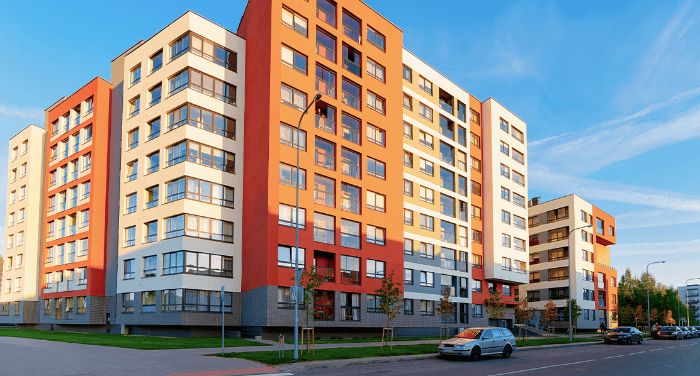Navigating the Intricate Landscape of Regulatory Standards for Cyber Security in Multi-Unit Units to Ensure Occupant Safety and Information Protection
Wiki Article
Within today's world, many people reside in multi-unit units, such as apartment complexes and condo communities. Such locations frequently share shared infrastructures for internet and other services. Although this setup can be convenient, it also brings up significant questions about system security and compliance requirements. Guaranteeing the safety of tenants and safeguarding their data is crucial. This article will explore the intricate environment of compliance standards for system safety in multi-dwelling units, focusing on how these guidelines assist keep residents secure and secure.
A of the primary regulatory standards that apply to system security is the General Information Protection Act (GDPR). This regulation is intended to safeguard individual data and confidentiality for persons within the EU Community. Although it mainly applies to businesses functioning in the EU, its principles can influence procedures in other areas as well. For multi-unit units, adhering to GDPR requires implementing robust data safeguarding measures. This includes making sure that residents' personal data is gathered, stored, and handled securely. By adhering to these standards, property managers can help establish trust with tenants and ensure their data is protected from illicit access.

Another important standard is the Healthcare Coverage Portability and Accountability Law (HIPAA), which protects sensitive healthcare data in the healthcare sector. In multi-dwelling buildings, especially those that provide medical assistance or have residents with specific medical requirements, compliance with HIPAA is essential. This requires that any medical information collected from tenants must be maintained confidential and secure. Building administrators must ensure that their network infrastructures are configured to prevent information breaches and unauthorized intrusion. By taking these steps, they not only comply with legal requirements but also foster a secure living environment for all tenants.
Alongside GDPR and HIPAA, the Credit Card Payment Sector Information Security Standard (PCI DSS) is a further vital regulatory standard. This standard is especially important for multi-unit units that process debit card transactions for rent or services. PCI DSS outlines protection protocols that must be implemented to safeguard cardholder data. This includes securing confidential information and regularly monitoring system safety. By adhering to PCI DSS guidelines, property managers can minimize the threat of data breaches and safeguard tenants' monetary data, which is vital for maintaining their trust and safety.
Finally, it is crucial for multi-unit buildings to remain informed on local and national regulations regarding network safety. Regulations and guidelines can evolve, and staying informed is crucial for compliance. Building managers should regularly assess their safety protocols and procedures to make sure they meet current requirements. This proactive approach not only helps in maintaining adherence but also improves the general security of the network. By prioritizing resident safety and data safeguarding, multi-unit buildings can establish a safe residential space that encourages confidence and reassurance among tenants.
To summarize, navigating the complex landscape of compliance standards for network security in multi-unit buildings is essential for ensuring resident safety and data protection. By understanding and implementing standards like GDPR, HIPAA, and PCI DSS, property managers can create Click This Link a secure space for their residents. Staying informed about local regulations and regularly reviewing security practices further enhances this dedication to security. In the end, a robust focus on adherence not only safeguards tenants but also fosters a feeling of belonging and confidence among multi-unit buildings.